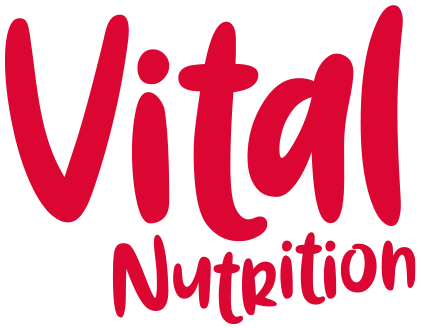Do you supplement?
Do you pop a daily multivitamin or take regular fish oil supplement in your quest for good health? If so, you are not alone. Two thirds of us take a nutritional supplement.
But do we really need them? Can't we just eat a balanced diet to get all the vitamins and minerals we need?
When I see clients, I am always keen to stress that we cannot supplement our way out of an unhealthy diet, so of course, eating a well balanced, nutritious diet is essential and should be the foundation for good health.
Do I need a supplement?
No matter how well you eat, there can be other factors that put extra demands on your health. If you are run down, under stress or have an existing health condition, then a carefully chosen supplement or two could add a little extra support for your body.
For example, many of us don’t realise that when we are under stress, our requirements for B vitamins, vitamin C and magnesium increase.
Medications, smoking, alcohol, and caffeine can also deplete the body of essential nutrients.
Added to this that fact that the nutrient content of the food we eat today contains lower levels of nutrients that the equivalent food decades ago. A study from 2003 found that the fruit and veg analysed contained 20% fewer minerals than in the 1930s, and 50% lower levels of zinc and calcium. Farming methods, food storage and transportation all impact the quality of the food we eat, and its nutritional content.
How to choose a decent one
Not all supplements are the same quality, or will give you the same benefits. On saying that, it does not mean you have to pay a fortune for a decent one.
Take a closer look at the ingredients label of your daily multi and you will find a whole list of ingredients. A lot of these are fillers and binders.
Fillers are added as bulking agents. The amount of active ingredient in a supplement is often very small. The dose you need might be physically so small that it needs something else with it in the capsule to fill the rest of the space and that’s where fillers come in. Common fillers include calcium, lactose, rice flour, salt and sugar.
The binders are those ingredients that bind the active ingredients together when they’re compressed into tablet form. Cellulose is a common one.
I would suggest choosing capsules, liquid or powders rather than tablets as they tend to be easier to absorb.
Also look at the forms of the minerals. For example magnesium and iron can be in the form of oxide (not so well absorbed) or citrate (easier to absorb). Cheaper brands tend to use less well absorbed forms, so it really is worth spending a little more to get a good one.
I would also suggest taking a trip to your local independent health food store. Chat to staff there who can advise you on your requirements. This will not happen in a supermarket, where the supplements tend to be cheaper, and probably less effective.
Buying from trusted brands also means you are less likely to be spending your hard eared cash on fillers and binders. Some of the brands I like include Viridian, Solgar, Biocare, Higher Nature and Solo. All available from health food shops.
Are supplements dangerous?
Supplements contain active ingredients and it is often the case that less it more! Some nutritional supplements can interact with certain medications, so take extra care and chat to your GP if you are taking any medicine. For example St John’s Wort can alter the effectiveness of antidepressants, and make birth control pills less effective, omega 3 and gingko can have a blood thinning effect cannot be taken with blood thinners like aspirin as it can increase the effect.
I think that a few well-chosen supplements can be a bit of a safety net for those times you might need a little extra boost, but always buy good quality products and only the supplements you really need. Do not overload with things you do not need.
This blog post first appeared as my column in The Irish News on Saturday 28th May 2022.

